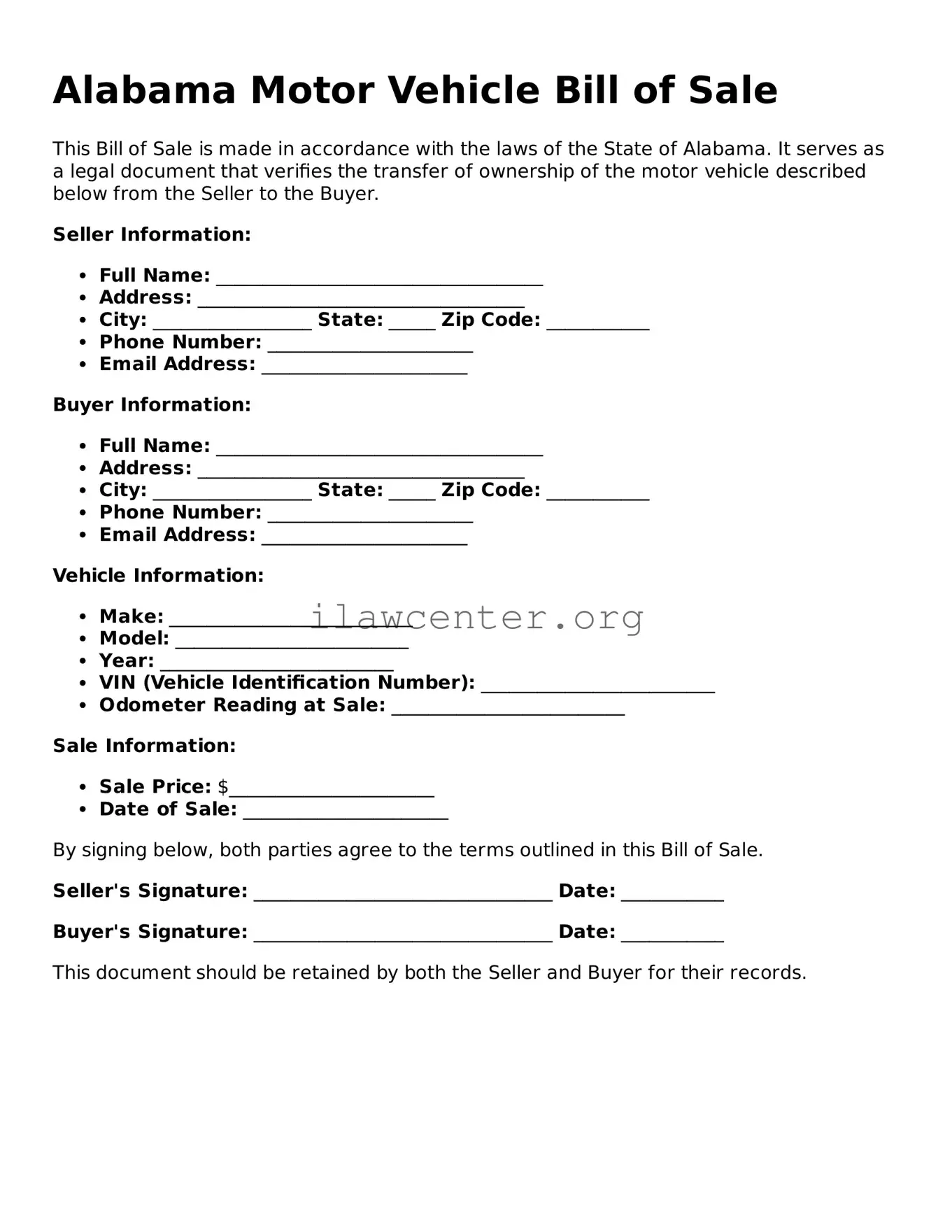What is the purpose of the Alabama Motor Vehicle Bill of Sale?
The Alabama Motor Vehicle Bill of Sale serves as a legal document that records the transfer of ownership from the seller to the buyer of a motor vehicle. It provides evidence that the transaction has taken place, detailing key aspects such as the sale price, the vehicle’s identification details, and the date of the sale. This document can be crucial for buyers in establishing ownership, particularly when registering the vehicle with the Alabama Department of Revenue.
What information is required on the Bill of Sale?
Several key pieces of information must be included in the Bill of Sale to ensure it is valid. First, the full names and addresses of both the seller and the buyer are essential. Next, detailed vehicle information should be provided, including the make, model, year, VIN (Vehicle Identification Number), and odometer reading at the time of sale. Additionally, the sale price of the vehicle and the date of the transaction should be clearly stated. Both parties need to sign the document to confirm their agreement to the sale.
Is the Bill of Sale a legally binding document?
Yes, the Alabama Motor Vehicle Bill of Sale is a legally binding document once it has been properly filled out and signed by both the seller and the buyer. It can be enforced in a court of law should any disputes arise concerning the ownership transfer, terms of sale, or vehicle condition. Therefore, it is advisable for both parties to review the document carefully before signing and ensure all provided information is accurate.
Do I need to notarize the Bill of Sale?
In Alabama, notarization of the Bill of Sale is not a requirement for the document to be legally valid. However, having the Bill of Sale notarized can add an additional layer of credibility and verification, particularly in disputes or when registering the vehicle. A notary public confirms the identities of the parties and witnesses their signatures, which can help prevent potential fraud or misunderstandings.
How do I use the Bill of Sale for vehicle registration?
To register the vehicle, the buyer must take the completed and signed Bill of Sale to their local Alabama Department of Revenue office. Along with the Bill of Sale, they will need to present other necessary documents, such as proof of identity, the vehicle’s title (if applicable), and payment for applicable fees. The Bill of Sale serves as proof of purchase, which facilitates the registration process and ensures the buyer can obtain the legal title to the vehicle.
What should I do if I lose my Bill of Sale?
If you lose your Bill of Sale, the process for recovery can be quite challenging because it is a critical document for proving ownership. The seller may be able to provide a duplicate if they kept copies of the original document. If that is not possible, either party may consider drafting a new Bill of Sale that includes all relevant details of the transaction. However, it is wise to have both parties sign and potentially notarize this new document to help solidify its validity. If issues arise during future registration or transactions, seeking legal guidance may be necessary to resolve ownership discrepancies.
